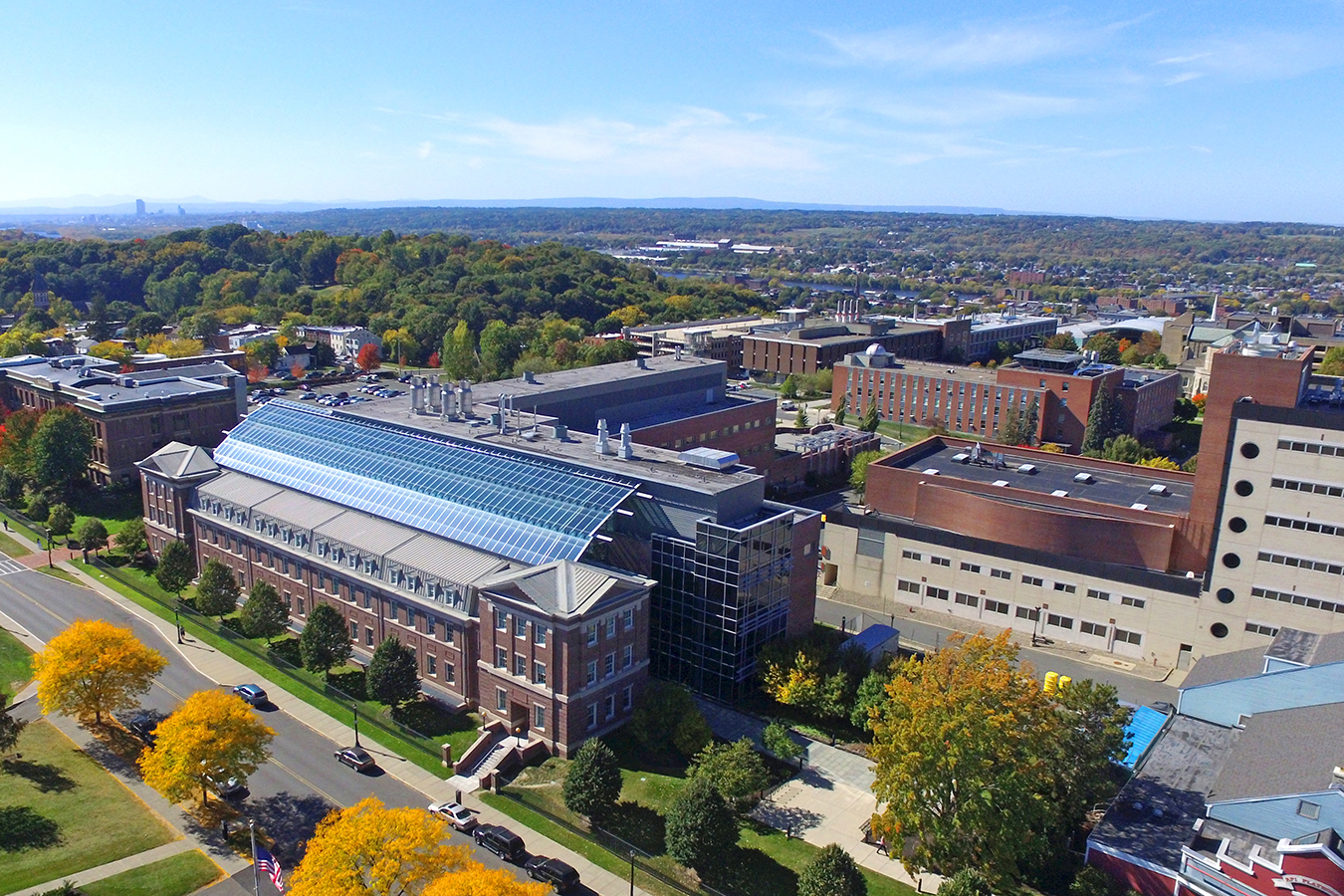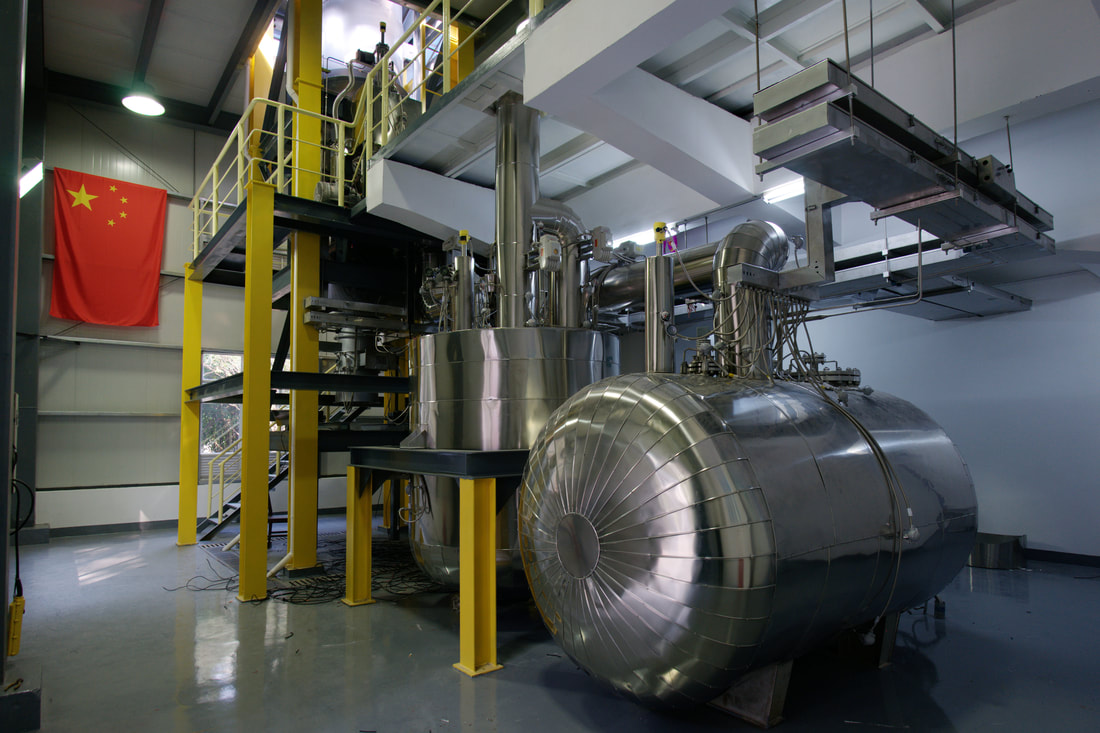Rensselaer Polytechnic Institute (Photo: RPI)
Rensselaer Polytechnic Institute will use $1.5 million in grants from the Department of Energy to lead projects aimed at upgrading nuclear power plant efficiency and safety, the university announced earlier this month. The grants are part of more than $61 million in awards recently announced by the DOE to support nuclear energy research.
A satellite image of Hawaii. Image: NASA
Jacob Wiencek, a self-described concerned resident of Honolulu, is doing his part to encourage the state of Hawaii to embrace nuclear power. An opinion piece written by Wiencek was published in Honolulu Civil Beat, an online, nonprofit news site, on August 4.
A rendering of the VTR facility. (Image: INL)
The Department of Energy announced in 2020 its approval of Critical Decision 1 for the Versatile Test Reactor (VTR) project, a one-of-a-kind scientific user facility that would support research and development of innovative nuclear energy and other technologies. The decision was well received by the nuclear energy community—after all, the DOE’s Nuclear Energy Advisory Committee had studied and reported on the need for the VTR and found strong support for the project among reactor developers, federal agencies and national laboratories, and university researchers.
This still image from “The Green Atom” highlights how Germany’s decision to shut down its nuclear plants has resulted in electricity that is twice as expensive as in neighboring France. (Source: Kite and Key)
“You know what power source is more dangerous than nuclear? Literally, all of them. When you add up industrial accidents and the effects of pollution, nuclear is safer than coal or petroleum or natural gas.”
A Japanese rat snake is fitted with a GPS transmitter that will allow researchers to track its movements. (Photo: Hannah Gerke)
Iberdrola’s Cofrentes plant, in Valencia. All of Spain’s reactors are to be retired by 2035. (Photo: Foro Nuclear)
Foro Nuclear, a Madrid-based association representing the interests of Spain’s nuclear sector, is not at all happy with its government’s involvement in a letter sent late last month to the European Commission calling for the exclusion of nuclear energy from the European Union taxonomy. (The taxonomy is a classification system establishing a list of environmentally sustainable economic activities for the EU.) Signing the letter were Spain’s minister for ecological transition and minister for the economy, as well as ministers from Austria, Denmark, Germany, and Luxembourg.
China’s molten salt loop experiment. (Photo: Thorium Energy World)
China is moving ahead with the development of an experimental reactor that would be the first of its kind in the world and “could prove key to the pursuit of clean and safe nuclear power,” according to an article in New Atlas.
Tuber magnatum, or European white truffles, may be the most expensive food on earth per kilogram. (Photo: Evan Sung)
Scientists from the Jozef Stefan Institute in Slovenia, with technical advice and analytical support from the International Atomic Energy Agency and the Food and Agriculture Organization of the United Nations, are studying the composition of truffles—a rare and expensive type of mushroom—in order to determine their origin and help detect fraud. Thanks to a database and the techniques developed, other laboratories worldwide can also test truffles, establish their geographical origin, and verify whether they are genuine.
A look at Fukushima Daiichi today. (Photo: The Asahi Shimbun via Getty Images)
News programmers’ hunger for stories about the aftermath of the earthquake and subsequent tsunami that caused three reactor meltdowns at Fukushima Daiichi in March 2011 shows no signs of abating.
The 1958 Ford Nucleon concept car. (Photo: The Drive )
A car capable of traveling 5,000 miles between fueling stops? Sounds impossible, right? It turns out that, yes, it was impossible. But that didn’t stop the Ford Motor Company in 1958 from envisioning a car—the Nucleon—powered by a small nuclear reactor. The Drive took a close look at the fantastical idea in a July 5 article, “Inside the Impossible Dream of the Nuclear-Powered 1958 Ford Nucleon.”








 A recently released technical report from Idaho National Laboratory finds “significant potential” for deploying microreactors on a global scale, but also “significant challenges in achieving the technical capacities, meeting regulatory requirements and international accords, achieving competitive costs, and for gaining public acceptance.”
A recently released technical report from Idaho National Laboratory finds “significant potential” for deploying microreactors on a global scale, but also “significant challenges in achieving the technical capacities, meeting regulatory requirements and international accords, achieving competitive costs, and for gaining public acceptance.”








